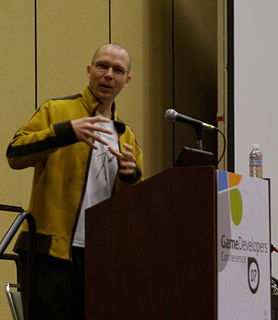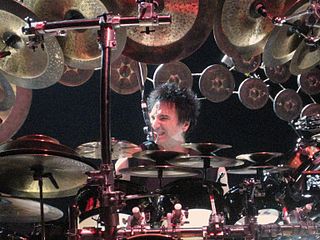Top 345 Metaphors Quotes & Sayings - Page 6
Explore popular Metaphors quotes.
Last updated on December 11, 2024.
Often people talk about how they feel 'stuck' in a situation. You're never stuck! You may be a little frustrated, you may not have clear answers, but you're not stuck. The minute you represent the situation to yourself as being stuck, though, that's exactly how you'll feel. We must be very careful about the metaphors we allow ourselves to use.
Wherever a story comes from, whether it is a familiar myth or a private memory, the retelling exemplifies the making of a connection from one pattern to another: a potential translation in which narrative becomes parable and the once upon a time comes to stand for some renascent truth. This approach applies to all the incidents of everyday life: the phrase in the newspaper, the endearing or infuriating game of a toddler, the misunderstanding at the office. Our species thinks in metaphors and learns through stories.
I've always felt that the writing I responded to most - the novels and stories that compelled me, that felt like they described the world I live in, with all of its subjectivity, irrationality, and paradox, were those which made free use of myths and symbols, fantastic occurences, florid metaphors, linguistic experiments, etcetera - to depict the experiences of relatively 'realistic' characters - on the level of their emotions and psychology, rather than in terms of what kinds of lives they led or what kind of events they experience.
Too many of us have lost the passion and emotion of the remarkable things we-ve done in space. Let us not tear up the future, but rather again heed the creative metaphors that render space travel a religious experience. When the blast of a rocket launch slams you against the wall and all the rust is shaken off your body, you will hear the great shout of the universe and the joyful crying of people who have been changed by what they-ve seen.
Fiction writers come up with some interesting metaphors when speaking of plot. Some say the plot is the highway and the characters are the automobiles. Others talk about stories that are "plot-driven," as if the plot were neither the highway nor the automobile, but the chauffeur. Others seem to have plot phobia and say they never plot. Still others turn up their noses at the very notion, as if there's something artificial, fraudulent, contrived.
Will we allow the decline of our language-the language of Shakespeare, Shaw and Steinbeck? Will we abuse our precious gift of communication? Will we bite our mother tongue with the teeth of indifference, crushing the taste buds of clarity and, without prompt application of the antiseptic of education, causing the gangrene of strained metaphors? Stand up, America, and let me hear your answer: Ain't no way, dude!
One of the metaphors of the book is the carpet. Not just the flying carpet, but the carpet as a woven surface in which many repetitions and motifs recur and mirror one another. This is very much reflected within the stories: they have borders within borders, repeated motifs which change. They have their feet in oral conventions, and for the mnemonics, the storyteller needs to have a structure in order to remember the stories.
Military metaphors are rarely exact, but sending Republicans against Democrats when the issue hangs in the balance is nearly always as futile as sending George B. McClellan against Robert E. Lee, the Italians against Marshal Montgomery's desert rats or an Arab armored division against an Israeli rifle company. The copy desk can write the headline before the battle begins and take the rest of the night off.
When we want to give expression to a dramatic situation in our lives, we tend to use metaphors of heaviness. We say that something has become a great burden to us. We either bear the burden or fail and go down with it, we struggle with it, win or lose. And Sabina - what had come over her? Nothing. She had left a man because she felt like leaving him. Had he persecuted her? Had he tried to take revenge on her? No. Her drama was a drama not of heaviness but of lightness. What fell to her lot was not the burden, but the unbearable lightness of being.
I never try and force-feed any song idea or lyrical message. It's really what's on my mind and what comes out of me. And a lot of these lyrics are metaphors for specific life situations that I've been through, and in most cases, the struggles. Something about human beings wearing sadness heavily on their sleeve inspires me to make something uplifting about the situation.
Look who's calling the cauldron black." "Kettle. It’s a kettle. Get your metaphors right." "That wasn’t a metaphor. It was a, you know..." He stared off into space, blinking. "One of those things that’s symbolic of another thing. But isn’t the same thing. Just like it." "You mean a metaphor?" "No! It’s like a story...like...a proverb! That’s it." "I’m pretty sure that wasn’t a proverb. Maybe it was an analogy." "I don’t think so.
To write or even speak English is not a science but an art. There are no reliable words. Whoever writes English is involved in a struggle that never lets up even for a sentence. He is struggling against vagueness, against obscurity, against the lure of the decorative adjective, against the encroachment of Latin and Greek, and, above all, against the worn-out phrases and dead metaphors with which the language is cluttered up.
Cosmetic surgery is not "cosmetic," and human flesh is not "plastic." Even the names trivialize what it is. It's not like ironing wrinkles in fabric, or tuning up a car, or altering outmoded clothes, the current metaphors. Trivialization and infantilization pervade the surgeons' language when they speak to women: "a nip," a "tummy tuck."...Surgery changes one forever, the mind as well as the body. If we don't start to speak of it as serious, the millennium of the man-made woman will be upon us, and we will have had no choice.
Holding onto and manipulating physical objects is one of the things we learn earliest and do the most. It should not be surprising that object control is the basis of one of the five most fundamental metaphors for our inner life. To control objects, we must learn to control our bodies. We learn both forms of control together. Self-control and object control are inseparable experiences from earliest childhood. It is no surprise that we should have as a metaphor-a primary metaphor-Self Control is Object Control.
So I should be aware of the dangers of self-consciousness, but at the same time, I’ll be plowing through the fog of all these echoes, plowing through mixed metaphors, noise, and will try to show the core, which is still there, as a core, and is valid, despite the fog. The core is the core is the core. There is always the core, that can’t be articulated. Only caricatured.
I toyed briefly with an image someone once mentioned to me, of a village in the shadow of a twin-peaked mountain. In the morning the sun rises. At lunch it sets behind the mountain. In the early afternoon it rises once more. The cocks crow for the second time, and later the sun sets again. No. One peak. Metaphors should not be belaboured.
My advice is really this: what we hear the philosophers saying and what we find in their writings should be applied in our pursuit of the happy life. We should hunt out the helpful pieces of teaching and the spirited and noble-minded sayings which are capable of immediate practical application-not far far-fetched or archaic expressions or extravagant metaphors and figures of speech-and learn them so well that words become works.
It's not necessarily a church theme and it's not really about church. I like my album themes to be metaphors because it gives me the freedom to speak about something else that's going on in my life, so the Born Sinner thing is not about church, it's not even about religion. It's using that as canvas to get other messages across and that's what the album will be.
When you write, it’s like braiding your hair. Taking a handful of coarse unruly strands and attempting to bring them unity. Your fingers have still not perfected the task. Some of the braids are long, others are short. Some are thick, others are thin. Some are heavy. Others are light. Like the diverse women of your family. Those whose fables and metaphors, whose similes and soliloquies, whose diction and je ne sais quoi daily slip into your survival soup, by way of their fingers.
And so I began to read,' Sorkar said. 'And at first the complete works were like a jungle, the language was quicksand. Metaphors turned beneath my feet and became biting snakes, similes fled from my grasp like frightened deer, taking all meaning with them. All was alien, and amidst the hanging, entangling creepers of this foreign grammar, all sound became a cacophany. I feared for myself, for my health and sanity, but then I thought of my purpose, of where I was and who I was, of pain and I pressed on.
Questions, inside the larger mystery of sorrow, which contains us and our daily transit, and is large enough indeed to contain the whole shifting tidal theater where I make small constructions, my metaphors, my defenses. Against which I play out theories, doubts, certainties bright as high tide in sunlight, which shift just as that brightness does, in fog or rain.
Consciousness... does not appear to itself chopped up in bits. Such words as 'chain' or 'train' do not describe it fitly as it presents itself in the first instance. It is nothing jointed; it flows. A 'river' or a 'stream' are the metaphors by which it is most naturally described. In talking of it hereafter, let us call it the stream of thought, of consciousness, or of subjective life. Source of the expression 'stream of consciousness'.
Religions are, by definition, metaphors, after all: God is a dream, a hope, a woman, an ironist, a father, a city, a house of many rooms, a watchmaker who left his prize chronometer in the desert, someone who loves you - even, perhaps, against all evidence, a celestial being whose only interest is to make sure your football team, army, business, or marriage thrives, prospers, and triumphs over all opposition.
Journeys become very good metaphors. They always have the character put into circumstances that reveal him. If I had based my characters in New York and had them just sitting and thinking about life, it would be like what contemporary U.S. fiction is about. That is very heavy, literally, for me. It doesn't become mainstream enough because the pages don't turn themselves.
[T]hat state, love, is so utterly alien to that other idea without which we cannot live as human beings --- the idea of justice. It is only because love is so profoundly the enemy of justice that our minds, shrinking in horor from its true nature, try to tame it by uniting it with its opposite [...] in the hope that if we apply all the metaphors of normality, that if we heap them high enough, we shall, in the end, be able to approximate that state metaphorically.
According to Shiva, life is in the end about fixing holes. Shiva didn't speak in metaphors. fixing holes is precisely what he did. Still, it's an apt metaphor for our profession. But there's another kind of hole, and that is the wound that divides family. Sometimes this wound occurs at the moment of birth, sometimes it happens later. We are all fixing what is broken. It is the task of a lifetime. We'll leave much unfinished for the next generation.
I do like Canadian poetry. Christian Bök, Anne Carson, Carmine Starnino, and Don McKay are a few of the Canadian poets whose work has been important to me. But I'm not sure that I do see poetry as a world apart. Some of my metaphors are based in the fantastic, but I try to be true to life as I understand it. That understanding is affected by my Canadianness, my Americanness, my whiteness, my gender, my age, my education, my experience...everything about me affects my view of reality. But I try to wrestle against those partialities, not embrace them.
I feel like I've always had two selves - the part of me that makes films and the part of me that's political, and they haven't really connected that much. Alias Grace talks about things like class and immigration and women's rights, which felt really good. But especially now, there are pressing things to be said. It's a really scary time in the world. It's a very scary thing to have an American president who openly brags about assaulting women and is openly racist. This isn't a moment to be speaking in metaphors.
I've learned a lot about language from reading slush. You can immediately tell if a writer is in control of the narrative. This writer will avoid using too many words like "possibly," "probably," "maybe," "perhaps," etc. He/she will avoid using clichés, as well as a lot of metaphors, and won't take four sentences to say what they could in one (or write a great sentence and follow it up with a bunch of stuff that just weakens it).
There is a diverse meaning to the lyrics as well. A lot of the stuff I write is from a personal level but is not really anything that I care about if people get or not so I write alot of the stuff as metaphors based in Viking mythology and Viking History which is sort of my main interest in life and sort of my main atmosphere in life.
I find myself using music metaphors all the time, but this is too perfect, I feel like. Digital downloading is like photographs online. It's great, they're available, you can see lots of different work, but it's a limited experience of the form. A book is like an album. You don't have to have a million dollars to be able to buy it, you have to save some money, you have to buy your album, then you take it home, and you put it on your turntable.
There are congregations on nearly every corner. I'm not sure we need more churches. What we need is a church. I say one church is better than fifty. I have tried to remove the plural form churches from my vocabulary, training myself to think of the church as Christ did, and as the early Christians did. The metaphors for her are always singular - a body, a bride. I heard one gospel preacher say it like this, as he really wound up and broke a sweat: "We've got to unite ourselves as one body. Because Jesus is coming back, and he's coming back for a bride not a harem.
Milton Erickson was a master at using experiential techniques to elicit strengths that were previously dormant. Mills and Crowley have masterfully captured essential elements of Erickson's work and applied it to therapy with children. Easy to read, meticulously referenced, and filled with inspiring case studies, Therapeutic Metaphors for Children and the Child Within has now been updated with important new findings, and it's essential reading for clinicians who work with children as well as for those who want to improve their use of therapeutic metaphor.
The minds of stone lovers had colonised stones as lichens clung to them with golden or grey-green florid stains. The human world of stones is caught in organic metaphors like flies in amber. Words came from flesh and hair and plants. Reniform, mammilated, botryoidal, dendrite, haematite. Carnelian is from carnal, from flesh. Serpentine and lizardite are stone reptiles ; phyllite is leafy-green.
Of course, I could never suggest that only poor people are misogynistic; too many rich folk are just as hateful of women as any poor person might be. I don't know if social problems are only circular; perhaps other geometric metaphors might better describe the triangular effects of social vulnerability, political oppression, and racial disadvantage. I think you're right - we've got to focus on both analyses and solutions. And sometimes, an adequate analysis goes far along in suggesting a suitable solution.
What's interesting to me is that in terms of people who I feel are getting what my game is about - and here I'm not even talking about what the elements of the story mean, like, whatever symbolism and metaphors and things are in there. But even the structure of the game, like, there's a fundamental structure and reasons in the way things are laid out, and parts of the game that are meant to draw people's attention to certain things, regardless of what's contained in that structure. And what's interesting to me is that some people get that, and some people don't.
I think the leadership of a company should encourage the next generation not just to follow, but to overtake. The duty of leadership is to put forward ideas, symbols, metaphors of the way it should be done, so that the next generation can work out new and better ways of doing the job. The complaint Gordon and I have is that we are not being overtaken by our staff. We would like to be able to say, "We can't keep up with you guys", but, it is not happening.
But that's typical of me. "This is going to end in tears," I tell myself every time I balance a cup of coffee on the upholstered arm of the chair I'm sitting on. And then, lo and behold, the cup topples and even before it lands, I tell myself, "Told me so!" Not to spell out, or spill out, one of the metaphors of my life, but I always do the stupid thing and then I do it again. I never learn.
I am the stereo-typical classic lapsed Catholic. Religious themes crop up in my songs sometimes as metaphors and other kinds of touchstones for getting at issues and "deeper issues," and all that. Right now, honestly, I think all religion is proving itself to be a NET negative on the human race. I recognize its valuable place in individual lives and many larger communities - I know the good that is done in its various names all over the world, but I don't believe in it anymore, and I see the negative aspects dragging us down at a much faster rate than the positive ones are bouying us up.
Fantasy is a literature particularly useful for embodying and examining the real difference between good and evil. In an America where our reality may seem degraded to posturing patriotism and self-righteous brutality, imaginative literature continues to question what heroism is, to examine the roots of power, and to offer moral alternatives. Imagination is the instrument of ethics. There are many metaphors besides battle, many choices besides war, and most ways of doing good do not, in fact, involve killing anybody. Fanstasy is good at thinking about those other ways.
I made a note in my head to be aware of things as they were happening, because they might not happen again. Up to that point, I was not really that appreciative of what was going on, or thinking about documenting life in a plainspoken manner. I was talking about my life and writing songs, but then I would go back and listen and they were about dreams, and legends, and metaphors and that was just not my life!
I really think kids should understand that music is like learning the alphabet. You put small letters together to make words, and then you use these words to create a story, but with music. And they really need to know how to mix and match those letters and how to come up with something that is really interesting, or speak in metaphors as poets do to show us something maybe we didn't think about.











































